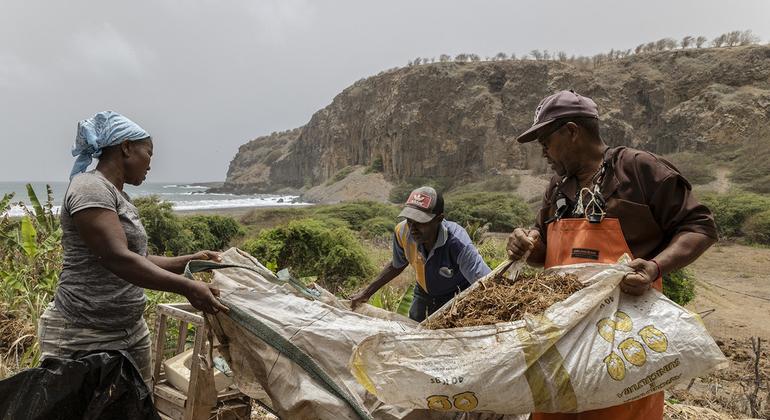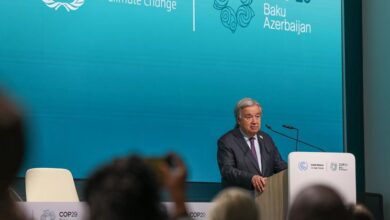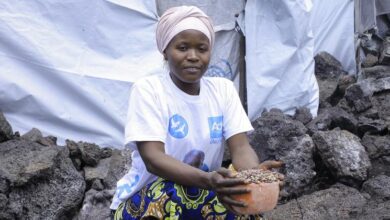South-South cooperation can help tackle ‘complex development landscape’

Talk to United Nations News before International Day for South-South CooperationDima al-Khatib, Director of the United Nations Office for South-South Cooperation, explained the transformative power of solidarity among developing countries.
UN News: Why is South-South cooperation so important?
Dima al-Khatib: Today, countries in the Global South are grappling with a host of complex development issues, which have of course been exacerbated in recent years by the pandemic and its aftermath.
Countries are also grappling with the impacts of the many crises that are taking place in the world today, whether they are geopolitical, food-related, education-related or economic. This is a rather complex development landscape.
This is a context where current development issues require cooperation between countries.
For example, when we talk about climate, we are not talking about a country. Climate, water management, natural disasters have no geographical boundaries. Peace and development are also things that have a spread.
So if countries don’t work together to be able to address, mitigate and adapt to those different complexities, then it’s a missed opportunity.
UN News: What are some examples of how countries in the Global South can work together to support each other?
Dima al-Khatib: I am from Lebanon and I would like to give an example of a regional initiative led by the United Nations Development Programme (UNDP), aimed at combating corruption. This initiative has provided technical assistance to individual countries to develop anti-corruption strategies. The initiative has been successful in creating a network of policymakers from all countries in the region who meet regularly to discuss how they can learn from each other from a policy perspective to legal aspects and to address specific cases. These networks have been extremely successful.
UN News: How common are examples of multi-country cooperation?
Dima al-Khatib: A major project funded by the India-UN Partnership focuses on the energy transition. It is a multi-country project involving 10 countries, all supported by the Solar Alliance. It helps countries not only learn from each other, but also ensures that any outcomes from these initiatives are closely linked to each country’s national development plans and priorities. So the project has a national dimension as well as a regional dimension.
UN News: Does cross-continental cooperation work?
Dima al-Khatib: I like this example because I saw it firsthand when I visited China not long ago. We have a partnership with China through a digital traffic management initiative in cities.
This is a great example of cooperation between Hang Xue and Santiago in Chile on learning how to manage traffic in big cities, reduce traffic congestion, ensure people’s comfort and reduce pollution using digital technology.
There are many examples that show the growing impact of this.

Dima Al-Khatib, Director of the United Nations Office for South-South Cooperation, speaks to UN News at the United Nations Headquarters in New York.
UN News: What role do young people play in South-South cooperation?
Dima al-Khatib: If you look at the population composition of southern countries, the majority are young people.
They are agents of change and they are very important to us. We have worked with UNESCO in a great initiative to connect universities between countries in the South.
This is important because it not only creates space for greener education but also creates a network of connections between young people in universities.
It’s something that can easily be scaled up across many other universities. For me, scalability and sustainability are the most important factors for us to be able to take this further.
UN News: The Link Between South-South Cooperation and the Future Summit of the Future?
Dima al-Khatib: The Summit of the Future is a crucial moment because we have five years to achieve our goal. Sustainable Development Goals (Sustainable Development Goals) and we are falling far behind. Only 17 percent are on track.
This is an opportunity for us to renew our commitment to the South-South cooperation agenda, and also to renew our commitment to using this approach to address the extremely complex development issues that countries are grappling with, including debt crises, climate change and health resilience.
I believe that many Southern countries have come up with solutions and are waiting to move forward with the support of other countries.




